Search
Summary
Loading AI-generated summary based on World History Encyclopedia articles ...
Answers are generated by Perplexity AI drawing on articles from World History Encyclopedia. Please remember that artificial intelligence can make mistakes. For more detailed information, please read the source articles
Search Results
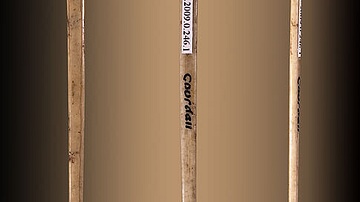
Image
Magdalenian Bone Sewing Needle
Flat bone sewing needle found at Gourdan Cave, Haute-Garonne, France. It belongs to the western European Magdalenian culture (c. 17,000 - c. 10,000 years ago) of the Late- or Upper Palaeolithic industry (c. 50,000/40,000 - c. 10,000 years...
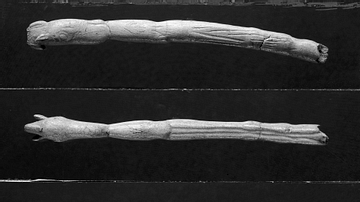
Image
Magdalenian Bone Spear Thrower
Spear thrower made out of bone and decorated with a carving of a horse's head. It belongs to the western European Magdalenian culture (c. 17,000 - c. 10,000 years ago) of the Late- or Upper Palaeolithic industry (c. 50,000/40,000 c. 10,000...
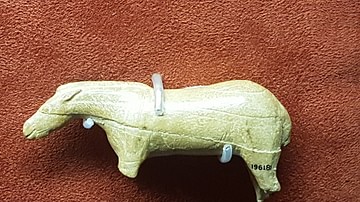
Image
Magdalenian Horse Figurine
Cast of a horse figurine carved out of mammoth ivory belonging to the Magdalenian industry of the Upper Paleolithic, which is associated with early modern humans (Homo sapiens) in southwestern France between c. 17,000 and c. 11,000 years...

Definition
Altamira
Altamira is a Paleolithic cave located in Santillana del Mar (Cantabria region) in northern Spain, containing prehistoric paintings. The cave was inhabited for millennia and so, besides Paleolithic cave art, it contains remains of the daily...

Definition
Hallstatt Culture
The Hallstatt culture is named after the site of that name in Austria and it flourished in central Europe from the 8th to 6th century BCE. The full period of its presence extends from c. 1200 to c. 450 BCE - from the Late Bronze Age to the...
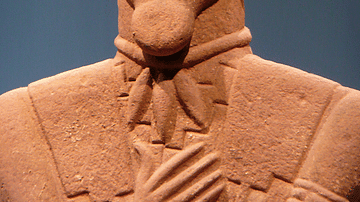
Definition
La Tène Culture
The La Tène culture (c. 450 - c. 50 BCE) is named after the site of that name on the northern shores of Lake Neuchâtel in Switzerland. It replaced the earlier Hallstatt culture (c. 1200 - c. 450 BCE) as the dominant culture of central Europe...
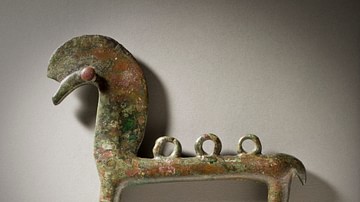
Definition
Villanovan Culture
The Villanovan culture flourished during the Iron Age in central Italy from c. 1000 to c. 750 BCE. It was a precursor of the Etruscan civilization, although the two populations are actually the same and the term Villanovan should not imply...
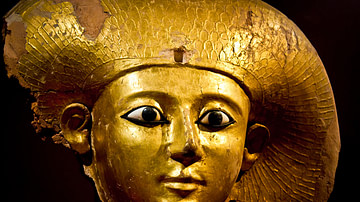
Definition
Ancient Egyptian Culture
Ancient Egyptian culture flourished between c. 6000 BCE with the rise of technology (as evidenced in the glasswork of faience) and 30 BCE with the death of Cleopatra VII, the last Ptolemaic ruler of Egypt. It is famous today for the great...

Definition
Ancient Persian Culture
Ancient Persian culture flourished between the reign of Cyrus II (The Great, r. c. 550-530 BCE), founder of the Achaemenid Persian Empire, and the fall of the Sassanian Empire in 651 CE. Even so, the foundations of Persian culture were already...
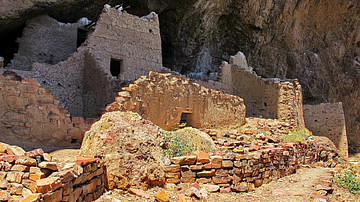
Definition
Salado Culture
The Salado culture is a term used by historians and archaeologists to describe a pre-Columbian Southwestern culture that flourished from c. 1200-1450 CE in the Tonto Basin of what is now the southern parts of the present-day US states of...